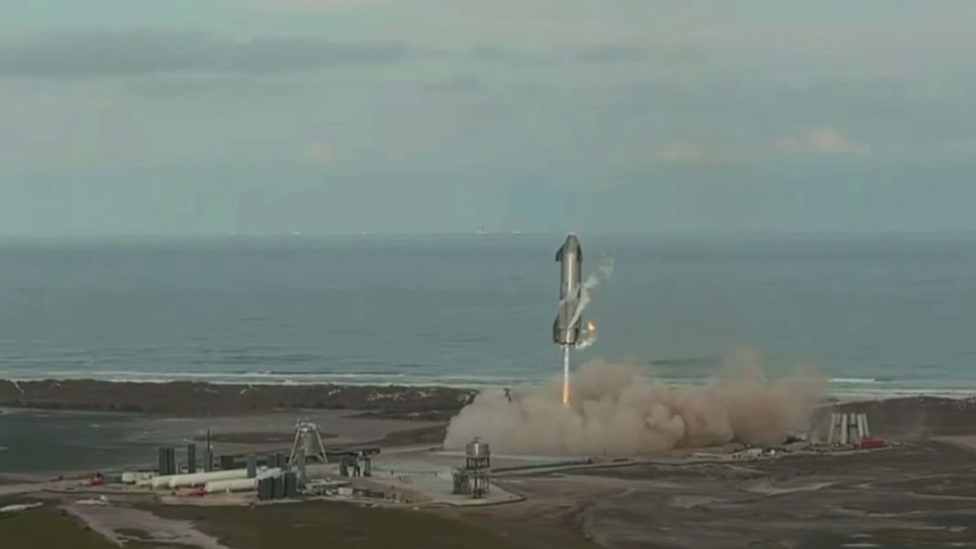SpaceX's Starship rocket lands but then blows up!
- Published
- comments

Here is SN10 coming in to land
SpaceX have had another eventful test flight of one of their Starship rockets.
The rocket - named SN10 - made a successful landing following it's high-altitude flight in Boca Chica, Texas.
This was more than it's predecessors SN8 and SN9 had managed, with both crashing upon landing.
Unfortunately, after the successful landing, SN10 caught fire and blew up!
Nobody was hurt and the landing is still seen as a huge success.
How did it happen?
Starship rockets approach their landing in a horizontal position. Boosters then flip them back vertical to touch down.
This is where SN8 and SN9 failed on their landings.
SN10 did get back to a vertical position but touched down heavily on its short legs, which appeared to collapse with the impact.
A fire then started around the base of the rocket.
Water hoses tried to extinguish it, but the rocket suddenly leapt upwards and exploded.
What does this mean for the mission?
Here's a comparison of all the different rockets
Even though SN10 caught fire, landing at all is a huge win for SpaceX.
The company will be very encouraged that it didn't crash to the ground.
Not only did it land smoothly but it also managed in-flight manoeuvres planned by the team.
It is hoped that Starships like this one will eventually replace the Falcon rockets.
Falcon rockets already carry out missions both with a crew and without.
What's next?
CEO Elon Musk has big plans for these Starships.
He has promised they will be "bigger and better" and capable of carrying passengers to the Moon and Mars.
He has even promised a trip to the moon to a Japanese billionaire Yusaku Maezawa, in 2023!
This is Yusaku Maezawa
SpaceX is hoping that Starship can be involved in Nasa's return to the Moon this decade.
Starship is competing with other aerospace companies to provide a landing system to take astronauts to the moon.
Even though the SN10 managed to land, some problems need to be fixed and more tests will need to be done.
But this is a step in the right direction for the SpaceX team's plans.
- Published6 January 2021
- Published10 January 2021
